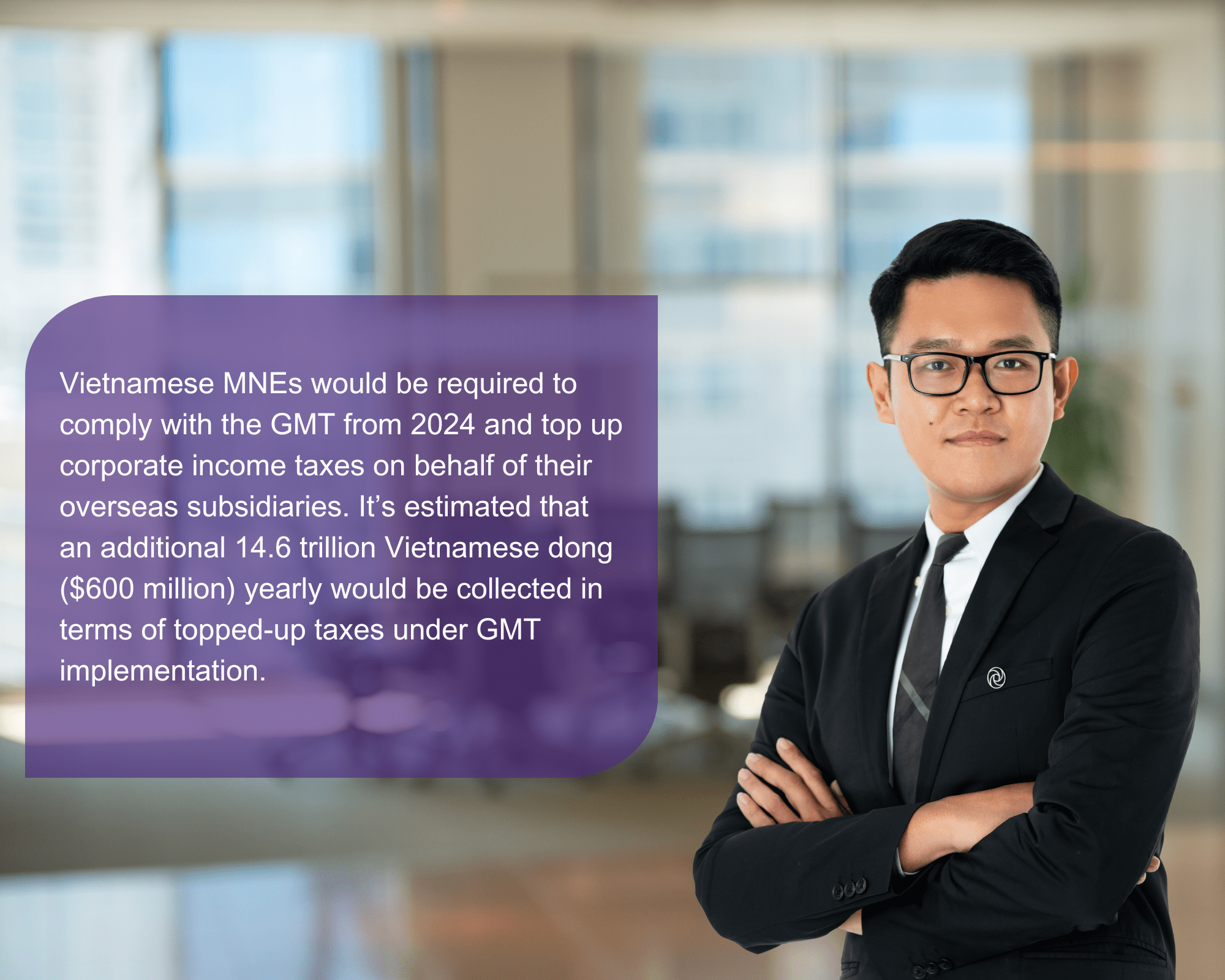-
International Financial Reporting Advisory Services
IFRS reporting advisory serivces of Grant Thornton are carried out by our dedicated team with expertise in IFRS implementation.
-
Audit Services
• Statutory audit • Review of financial statements and financial information • Agreed-upon procedures • FRAS services • Compilation of financial information • Reporting accountant • Cross-border audit • US GAAP audit
-
Audit Quality
We have various methods of monitoring our system of quality control and engagement quality, including real-time involvement of coaches and national office personnel on select audit engagements, reviews of issuer audit engagements prior to archiving by someone outside of the engagement team, and internal inspections of assurance engagements and the system of quality control.
-
Audit Approach
Audit Approach
-
Licensing services
Licensing services
-
International tax planning
Our extensive international network provides us with significant resources to meet all your expansion goals. We strive to develop commercially focused and tailored tax strategies to minimise tax exposures and maximise business efficiency.
-
Expatriate tax planning
We have a broad knowledge base and skills to assist you keep your personal income taxes to a legitimate and reasonable level, while remaining compliant with legislation. We can develop a personalised package for each key employee to take maximum advantage of the exemptions and incentives available.
-
Tax advisory
We will review the proposed business model and transactions and advise on tax implications and recommendations to optimize the tax opportunities under the local regulations and treaties which Vietnam entered into. Furthermore, we coordinate with our GT global tax team to provide a comprehensive tax advisory for the countries involved in the business model and transactions.
-
Tax compliance services
This service is designed to assist enterprises to cope with the statutory tax declaration requirements in line with the Vietnamese tax laws as well as the frequent changes and updates in tax laws.
-
Tax health check
Our Tax Health Check involves a high-level review of specific tax areas to highlight the key issues that need to be rectified in order to reduce tax risks. Through our extensive experience, we have identified key risk areas in which many enterprises are not fully compliant or often overlook potential tax planning opportunities. Our tax health check service represents a cost-effective method to proactively manage risks and reduce potential issues arising as a result of a tax inspection.
-
Transfer Pricing
Transfer pricing is a pervasive tax issue among multinational companies. In Vietnam, the tax authorities require special documentation to report related party transactions. Compliance with transfer pricing regulations is an important aspect of doing business effectively in Vietnam as failure to do so may result in significant penalties.
-
Tax due diligence
We conduct tax due diligence reviews of target companies to analyse their tax exposure and position in relation to acquisitions, mergers or consolidations. We are able to integrate this service with our Advisory Services department in order to offer a comprehensive, holistic due diligence review.
-
Customs and international trade
Our experienced professionals can help you manage customs issues more effectively through valuation planning and making use of available free trade agreements. We also assist Clients in optimising their customs procedures by making use of potential duty exemptions and efficient import-export structures. Risk mitigation activities include customs audit defense and compliance reviews.
-
M&A Transaction
We advise numerous foreign investors on efficient tax structures for their investments. Our experience allows you to consider all the options and set up a corporate structure that meets both operational and tax efficiency requirements. In short, the structure that is best for you.
-
Industrial Zones – Picking A Location For Your Business
Grant Thornton Vietnam’s one-stop services are designed to provide comprehensive support to both new and current investors who are planning to expand or restructure their business in Vietnam. Our professionals have established strong working relationships with landlords, property developers and authorities at various localities. With extensive experiences in liaison with the relevant agencies, we offer assistance including negotiation on land rental rates and efficient management of licensing process. Our customized and flexible solutions can bring benefits of cost efficient location, accelerate licensing process, and optimize tax opportunities while remaining in compliance with legislation.
-
Tax Audit Support
Tax audit support services provide comprehensive assistance to your business in Vietnam. Recent tax practices have shown the general tendency of launching routine tax audit on yearly basis. Tax authorities have been effectively using more sophisticated methods to identify target entities from across different industry sectors.
-
Business Risk Services
Business Risk Services
-
Transaction Advisory Services
Transaction Advisory Services
-
Valuation
Valuation
-
Business consulting services
Finance Management Advisory
-
Accounting services
Accounting services
-
Taxes compliance within outsourcing
Taxes compliance within outsourcing
-
Payroll, personal income tax and labor compliance
Payroll, personal income tax and labor compliance
-
Secondments/Loan staff services
Secondments/Loan staff services
-
Compilation of the financial and non-financial information
Compilation of the financial and non-financial information
-
Accounting systems review and improvement
Accounting systems review and improvement
-
Initial setting-up for accounting and taxes systems
Initial setting-up for accounting and taxes systems
-
Management accounting and analysis
Management accounting and analysis
-
Comprehensive ERP system solution
ERP software is a tool for business operations, production management, order processing and inventory in the business process. Today, ERP software for small and medium businesses has been greatly improved to help businesses manage their business better. The article below will answer all relevant information about what ERP software is and offer the most suitable ERP solution for businesses. Let's follow along!
-
Analyze Business Administration data
We believe in the value that data can bring to the success and development of every business. Our team helps design data architecture supported by tools, to support business governance and provide useful information to management.
-
Financial reporting compliance solution package
Putting financial issues at the heart, this service helps ensure that financial reports for customers comply with both the requirements of Vietnamese accounting regulations and standards (VAS) as well as reporting standards. international finance (IFRS).
-
Third-party ERP extensions
ERP is a long-term solution that requires long-term travel, not short-term. We understand that many businesses cannot deploy the entire ERP system at once due to many different reasons, instead businesses can deploy each part. Over time, these solutions can be expanded to accommodate improved business processes or can even link completely new processes across different departments.
-
Localize, deploy and rebuild the project
Quite a few ERP projects need to be implemented according to current Vietnamese requirements and regulations, but still comply with common international business requirements. These projects need some improvements and adjustments in the right direction.
-
Consulting on technology solutions
We support the selection and implementation of the most suitable solutions, ensuring business efficiency and performance. We will work closely with customers to plan, evaluate and implement the right technology investment strategies and solutions to meet the development needs of businesses.

-
Offshore company establishment service
Using the offshore company model will facilitate the owner in the process of transaction and expand overseas markets, take advantage of the tax policy with many incentives and protect the value of the family enterprise's assets.
-
Private Trust Advisory
The development of the economy with many modern financial instruments has brought many advantages and opportunities for the enterprises, but there are still certain potential risks in any type of business. So how to protect your asset value with an appropriate company structure while stay compliance with relevant regulations?
-
Our values
We have six CLEARR values that underpin our culture and are embedded in everything we do.
-
Learning & development
At Grant Thornton we believe learning and development opportunities help to unlock your potential for growth, allowing you to be at your best every day. And when you are at your best, we are the best at serving our clients
-
Global talent mobility
One of the biggest attractions of a career with Grant Thornton is the opportunity to work on cross-border projects all over the world.
-
Diversity
Diversity helps us meet the demands of a changing world. We value the fact that our people come from all walks of life and that this diversity of experience and perspective makes our organisation stronger as a result.
-
Contact us
Contact us
-
Available positions
Experienced hires
-
Available positions
Available positions
While other Southeast Asian economies such as Singapore and Thailand have announced they are deferring implementation of the OECD global minimum tax initiative to 2025, Vietnam is keen to apply the tax this year. Its introduction was formally approved by the Vietnamese National Assembly on Nov. 29 by a resolution passed with over 93% of votes in favor.
While there’s no specific legal guidance on GMT implementation, there currently seems to be no difference between its prospective application and international practice.
The concept of a GMT has been agreed internationally since October 2021 under the Organization for Economic Cooperation and Development’s two-pillar solution to the tax challenges arising from digitalization and globalization. An effective corporate tax rate of 15% was proposed by the OECD as a minimum standard for large multinational enterprises with revenue exceeding 750 million euros ($824 million) in two of four consecutive years.
Potential Positives
Vietnamese MNEs would be required to comply with the GMT from 2024 and top up corporate income taxes on behalf of their overseas subsidiaries. It’s estimated that an additional 14.6 trillion Vietnamese dong ($600 million) yearly would be collected in terms of topped-up taxes under GMT implementation.
GMT is also aimed at reducing profit shifting within MNEs because tax gaps would be narrowed, and the advantages of tax havens would no longer be relevant when the 15% minimum tax rate takes effect.
Potential Negatives
In addition to lower labor costs and political stability, tax incentives are a major feature that Vietnam offers to attract foreign investment. Despite the 20% standard corporate income tax rate, the application of most incentives would result in effective corporate tax rates lower than 15% or even in tax exemption, but such benefits might be phased out when the GMT applies.
Because topped-up tax will be considered and submitted in home jurisdictions where MNEs are headquartered, Vietnamese tax incentive policies, especially those offered to large MNEs, would no longer appear attractive when GMT simultaneously takes effect on a global scale.
In terms of economic development, Vietnam is heavily dependent on foreign direct investment, whose revenue accounts for over 70% of the country’s exports. The country has also been putting major effort into emerging as the alternative global manufacturing location to replace China, and the GMT may consequently become a factor slowing down this process.
The tax authority estimated that about 112 MNEs in Vietnam will be impacted when the GMT takes effect and potentially reduces the country’s competitiveness. Further, an approximate 30% of Vietnam’s FDI from large MNEs such as Samsung Electronics Co., Intel Corp., LG Corp., Robert Bosch GmbH, will also be impacted by the GMT. MNEs would need to carefully consider this GMT factor in their future planning.
Samsung, which is the largest FDI enterprise in Vietnam, has an estimated additional tax obligation of up to $6.5 billion for the whole tax incentive period that the company has benefited from in Vietnam up to 2024. This amount will be contributed to South Korea’s National Tax Service once the GMT takes effect.
Unless compensation for this impact can be considered by the Vietnamese government, Vietnam would lose its competitiveness as well as tax revenue it should have been entitled to, and future potential investment opportunities.
It’s noteworthy that other countries, when considering the impact of the GMT, have proposed compensatory initiatives to keep investors in the short term while assessing the details of the effect of the GMT in the long term. For example, the Board of Investment of Thailand is considering the provision of cash grants to qualifying investors to compensate for the impact of the GMT.
A similar cash support policy in lieu of tax incentives was also recommended by Samsung’s representative as a resolution.

Future Developments
Measures to alleviate the impact of the GMT should therefore be considered, and they need to be both effective and timely. A draft resolution dated Aug. 16, 2023 supporting high-tech companies, focusing on large projects and mentioning investment support in terms of tax credits or cash grants, has been considered by the government.
However, the business community—not only the high-tech giants—would require stronger and more comprehensive support as well as legal guidance.
First, it’s necessary to establish expert teams to collaborate with business communities to assess and evaluate the impact of the GMT on taxpayers in Vietnam.
Second, legalization guidance could be implemented into current tax law. Solutions for alternative incentives also could be considered and introduced at the same time to retain a favorable environment for investors and demonstrate commitment from the Vietnamese government to maintaining the investment environment.
In terms of such alternative compensation, both financial support and Pillar Two-focused solutions (such as policies on the income inclusion rule and qualified domestic minimum top-up tax) should be considered and applied simultaneously.
From a business perspective, the executives of MNEs should be aware of the GMT and study the specific impact on their businesses, collaborating with Vietnamese legislators to arrive at appropriate and realistic resolutions.
The GMT is inevitable and its application, despite certain benefits, will have significant impact on the Vietnamese tax system. Vietnamese legislators are recommended to take immediate action to carefully study its effects and provide timely measures to ensure that Vietnam remains attractive to foreign investors.
This article does not necessarily reflect the opinion of Bloomberg Industry Group, Inc., the publisher of Bloomberg Law and Bloomberg Tax, or its owners.
Author Information
Do Vu Bao Khanh is Tax and Transfer Pricing Senior Manager of Grant Thornton Vietnam.
Source: Bloomberg Tax









